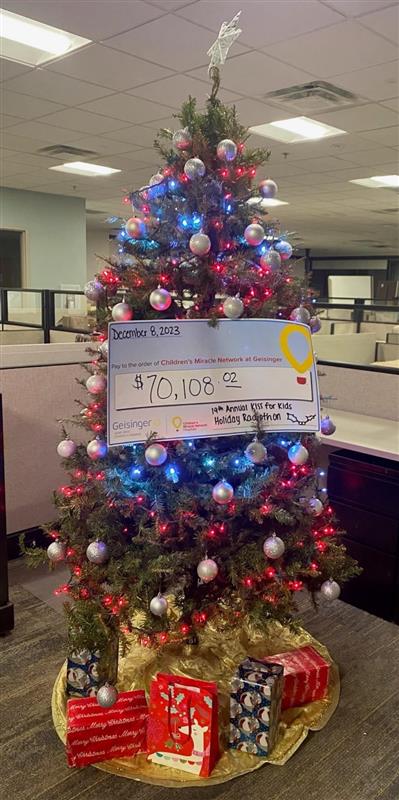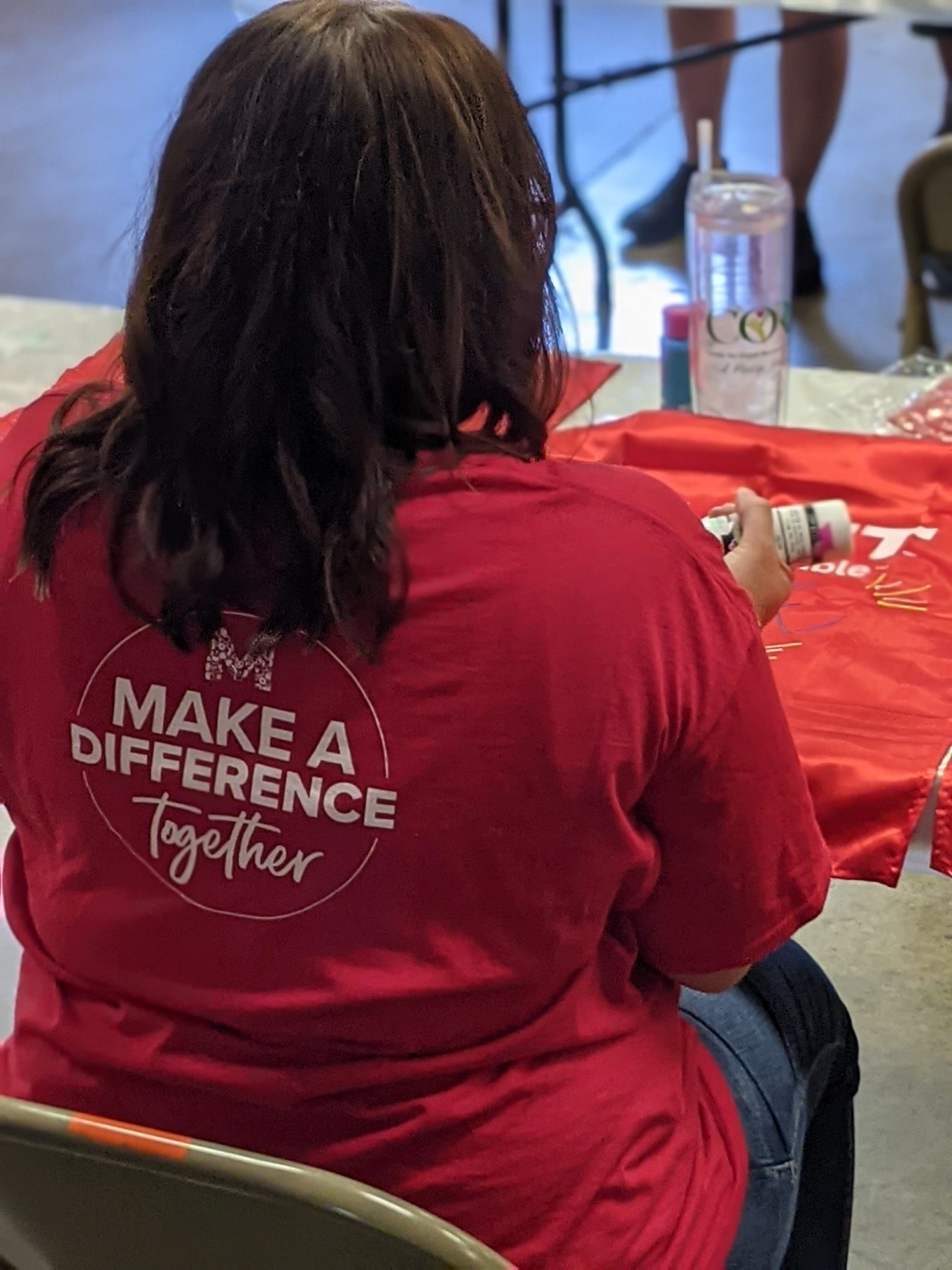2016 Miracle Kid Royce Frazier

Royce Frazier of Tannersville, 17, has had many memorable experiences at his young age. A very-gifted athlete, he plays for his high school baseball and basketball teams as well as a baseball club and travel team.
For the past two summers, as a freshman and sophomore, Royce has joined with a team from the Allentown and Bethlehem area to play in the Pennsylvania Keystone Games. It has been a great thrill for the young infielder. In 2014, his team took the bronze medal. Last year they took gold.
“It was one of the best games ever,” Royce said. “I will never forget that game.”
His team faced teams from all over the state, including the Pittsburgh, Philadelphia and State College areas. In the championship game Royce’s team was up 8 to 4 in the 7th inning. But they allowed the opposing team to tie and force extra innings. In the 12th inning, Royce’s team put up 8 runs and went on to win the game 16-8.
Everyone who knows Royce is quick to tell you how good of an athlete he is – his parents, his coaches, even his doctors. But Royce is not one to brag.
“I’m skilled at baseball if you want to put it that way. I play shortstop and I pitch,” Royce said. “There are people who like to brag about what they do. I’m not one of those people.”
He is not someone to complain either, which is why when Royce first showed symptoms of being sick during a basketball tryout, his parents knew something was wrong.
In sixth grade, during the tryout, Royce continued to take himself out of the practice and complained to his father that his stomach was hurting.
“He has always had tremendous stamina. He never gets tired,” his father, Ron Frazier, said. “He came to me and said he wasn’t feeling well. I told him to sit for a while and rest. He sat for about 5 minutes and then went back in. In another 5 minutes he was back saying his stomach was hurting and he couldn’t do any more.”
Ron and his wife, Louise Frazier, decided to take Royce to their family doctor for what seemed to be more than a simple stomachache. The doctor thought it might be a fiber issue and put Royce on a high fiber diet. However, soon after, the symptoms continued and became more severe, involving constipation and large amounts of blood.
During another visit, his pediatrician recommended he see a gastroenterology specialist at Geisinger Janet Weis Children’s Hospital because of what appeared for be a skin tag and worsening symptoms.
“Before this I had not heard of the Geisinger Health System,” Louise said. “We went to Geisinger and from the minute we got there, we were treated as if we were the only patients in that hospital. Clearly that is not the case, but you felt that someone cared about what was going on, even though we were in the discovery period.”
Royce and his parents were introduced to Martin Maksimak, MD, pediatric gastroenterologist.
“When I first saw Royce his growth chart had flattened out a little bit,” Dr. Maksimak said. “That was concerning in addition to seeing him for abdominal pain and constipation. During my exam I also found that he had some perianal skin tags that can be found with Crohn’s disease.”
Dr. Maksimak ordered blood work, which showed elevated markers of inflammation. He then ordered an endoscopy and colonoscopy, and that same day diagnosed Royce with Crohn’s disease. The disease is an inflammation of the gastrointestinal tract that can occur anywhere from the mouth to the anal area. It affects more than 700,000 Americans and has no cure.
“It was surprising for us, because we were just not expecting that,” Louise said. “But as soon as we had the diagnosis, other things started to happen quickly like weight loss.”
Crohn’s disease can cause abdominal pain, diarrhea, weight loss, anemia and fatigue. Some people may be symptom free most of their lives, while others can have severe chronic symptoms that never go away.
Treatment usually involves drug therapy with medications such as steroids and immunosuppressants to slow the progression of disease. If these aren’t effective, a patient may require surgery.
“I learned about Crohn’s disease with my mother,” Louise said. “My mom had surgery in which 21 inches of her intestines were removed. We had to determine what type of treatment to pursue for Royce.”
The Fraziers faced a few options for treatment. There are new medications, such as Remicade and Humira, which have had great results for treating Crohn’s, but each has potential drawbacks.
“Remicade as a big list of side effects, but it is very rare for us to see those. Also, the medication has to be given intravenously, which means he would need an infusion every 8 weeks,” Dr. Maksimak said. “The drug also is very expensive and it is only indicated for people that have aggressive inflammatory bowel disease. We use it earlier in pediatrics than in adult medicine because the earlier you use it the better the response.”
Royce’s parents researched the potential medical treatments and decided to start him on oral medications. The decision was not easy, but was one made on their protective instincts as parents and by the influence of the insurance company.
“Part of this battle is that as a parent you want to make the right decision. You don’t have much room. You need to make the right decision,” Louise said.
Louise and Ron worried a lot about what would be the easiest and most effective treatment for Royce.
“The doctors gave us options and we debated on which was the best. We continued the oral medication, because Louise and I were both reluctant to have drugs administered to our son intravenously,” Ron said. “We weren’t comfortable with that and we were more concerned about the long-term effects of the medication on Royce’s body.”
For those first few months, Royce was put on customary medication used to treat Crohn’s. He was taking a steroid, oral mesalamine, vitamin supplements and nutritional supplements, which in one day, totaled nearly 14 combined pills.
“He hated the taste of the nutritional supplement. He would try to give it away,” Louise said with a laugh. “The UPS man would deliver it to the door and Royce would try to get him to take it back. If he saw someone who was thin, he would say, ‘I got something for you.’
“I would say the first year after being diagnosed was the most trying, just because you are watching him adjust to this new reality,” she added.
The biggest problem for Royce immediately after the diagnosis was adjusting what he ate.
“I couldn’t eat popcorn or hot wings. I was mad. I was mad at the doctor, my parents. I was mad at everyone. They were restricting me from everything,” Royce said.
“Even if he snuck to eat it, he had an immediate reaction,” Louise said. “One time I went to Connecticut and Ron and Royce went to the movies and Ron thought, ‘A little popcorn won’t hurt him,’ and within five minutes, he was projectile-vomiting all over the place. So, lesson learned.”
“It was good going in, but bad coming out,” Royce said, shaking his head.
Royce continued on the oral medications for almost eight months, but his condition didn’t improve much and his weight continued to drop. With the guidance of Dr. Maksimak, the Fraziers decided to change course.
“In our own minds we had to come to a clear comfort level of being able to watch our son be hooked up every 8 weeks and intravenously administered the Remicade. There were some other things associated with that form of treatment, like side effects, that we were not comfortable with initially,” Ron said. What we did notice was that he was exclusively this on the oral medication for almost a year and the treatment wasn’t alleviating his symptoms.”
The Fraziers decided to change course and went back for another discussion with Dr. Maksimak. “We determined that we should consider the other form of treatment, which in this particular case was the Remicade from Johnson & Johnson,” Ron said.
Although they decided to move forward with the treatment, they were stymied by health insurance. The insurance company insisted that Royce would need to take certain medications before they would cover Remicade.
“We were very lucky to have Dr. Maksimak behind us and social worker, Dianne McCurly, at Geisinger, because as I researched the medication, and with Dr. Maksimak’s knowledge, we found that the medicine the insurance company suggested had a high percentage of adolescent lymphoma in African American males,” Louise said. “Some people don’t have the wherewithal to fight the insurance companies and we were very lucky in that way. When it comes to my child, I was willing to have that battle to help my son get what might help him feel better and be a thriving kid.”
Almost immediately after starting the Remicade treatment, Royce and his parents could see a big difference. He began growing and gaining weight. His symptoms subsided to where he was pretty much symptom free.
“The Remicade helped his symptoms immediately. His numbers improved. The markers of inflammation went down to normal. He has not had any symptoms since,” Dr. Maksimak said. “He can continue this treatment into adulthood.”
Royce and his parents travel to Danville every 8 weeks for an infusion of Remicade to help keep him symptom free, but it is still not easy to watch him receive the treatments.
“It is psychological warfare when you are there. As much comfort as they provide, the machine goes off every 15 minutes and they come in to check his blood pressure and his heart rate,” Louise said. “You have to stay 30 minutes after he is done to make sure there is no reaction. From treatment to treatment there is a worry and there is a concern. I worry because each treatment is independent from the one before. At any point, he could have a reaction and we will have to change course again.””
“The great thing about Royce is that they have never had to increase his dosage, because his body has responded so well to the dosage that he has had,” Ron said. “Each time we go there, they run very specific tests, to check levels of everything. His levels have been wonderful and hopefully it continues that way. Dr. Maksimak has been very pleased with how his body has been responding to the treatment.”
For the Fraziers, there is no place they would rather have their son treated than at Geisinger Janet Weis Children’s Hospital.
“In terms of the hospital itself and the service that Royce has received, it is remarkable what they do,” Louise said. “From that first visit to now, it is like there is no one else there. It says something when that can be done, when that can be achieved in midst of the day to day at a hospital. I believe that they care. For us that’s important and that has helped us tremendously.”
Ron could not agree more and enjoys time with Dr. Maksimak during Royce’s visits. Dr. Maksimak always wants to hear about what Royce has accomplished on the baseball field or on the basketball court and how he is doing in school.
“They have outstanding bedside manner. Every person I come in contact with, whether it be the nurses or doctors, they are always willing to engage in conversation outside of just the care,” Ron said. “Obviously they are servicing many patients, but that 5 or 10 minutes just puts you at ease and takes you away from what you are there for.”
Now Royce is able to focus on school, sports and being a typical teenager without the troubling symptoms of Crohn’s Disease.
“I’m into sports, obviously, and the girls. I am one of those adventurous people. I like to go on hikes. I like to jump off cliffs,” Royce said. “I don’t know where you would categorize me.”
“Somewhere between crazy and cool,” Louise said.
“No, just crazy,” Royce says with a smile.
“Just a typical teenager with a lot of energy,” Ron adds. “Needs to figure out how to burn it off.”
For Ron and Louise, it’s the little things that give them the most comfort.
“At his last visit, I noticed that when Royce used to lay on the table, he would fit,” Louise said. “This time, his legs were falling off. They pulled out the table extension and his feet were still hanging over. For me those are small little blessings. We laughed about it, but I recognized it as blessing. That’s a big deal.”
Donations to Children’s Miracle Network at Geisinger have purchased endoscopy and colonoscopy equipment used on kids like Royce in the Pediatric Gastroenterology Department at Geisinger Janet Weis Children’s Hospital.






